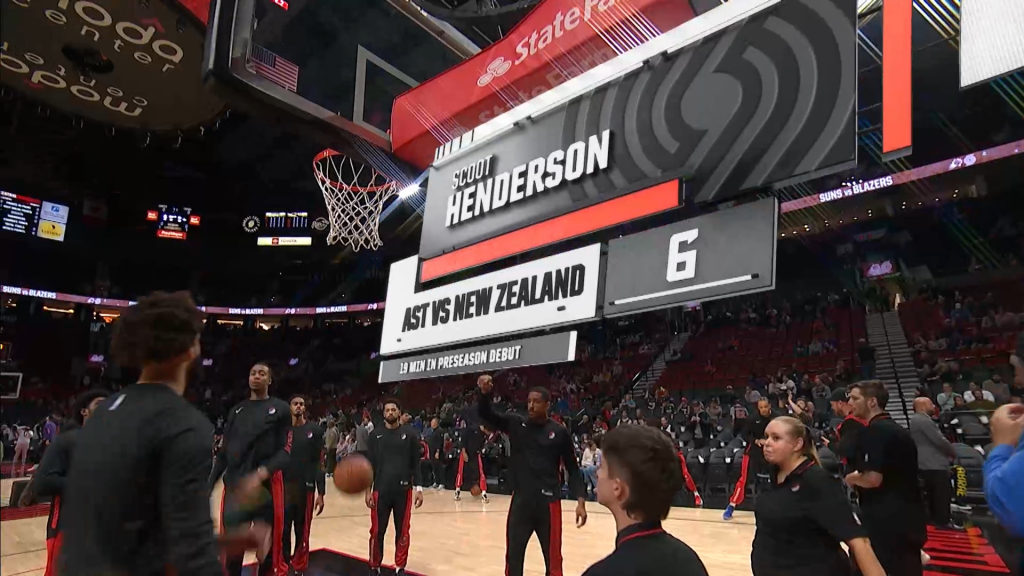Trail Blazers broadcast AR graphics from handheld camera
November 14, 2023

disguise, a specialist in real-time visual experiences, has partnered with the Portland Trail Blazers to broadcast augmented reality (AR) graphics created by tracking a handheld camera during a basketball game. The AR graphics bring fans a more in-depth view of the action with live in-game stats.
“The NBA has provided live game data for a long time, however, we are breaking new ground by taking that data and using it to create an AR experience,” said Trail Blazers Graphics Producer, John McConnell. “Doing this wasn’t easy. Basketball games are fast-paced, with lots of handheld camera use, and live handheld tracking has never been done before in our sport. We knew we needed a partner to help. disguise has proven to be an industry leader in broadcasting technology and AR, and their team’s incredible passion for basketball made them a perfect fit to make our broadcast graphics next-gen.”
To create the AR graphics, disguise and the Portland Trail Blazers — who are one of only five teams in the league that produce all their live broadcasts in-house — spent six weeks working in close collaboration. Together with StYpe, the first step was to install tracking hardware into the Moda Center basketball arena, which used the RedSpy tracking system with an infrared camera pointing to markers on the arena’s ceiling. Next, a disguise px+ media server was installed to enable the Trail Blazers to render real-time Unreal Engine AR graphics with live data feed integration.
All graphics were controlled through disguise Gateway, which was integrated with Viz Trio, as well as disguise’s Porta solution for native Unreal Engine control. The Creative Services team at disguise provided data visualisation and concept development, as well as Unreal Engine graphics implementation and data integration services.
As a result of the work, Trail Blazers fans can see on-air graphics elements that look like they’re in the arena itself, right next to the players. From the pregame show to the fourth quarter, these graphics show live player and game information in a more dynamic, easy-to-read way than lower-thirds graphics alone. There’s also an AR line graph that shows the ups and downs of the team’s shooting percentage throughout the game. Each new field goal attempt can be added to the chart, allowing it to be constantly updated during the game.
“Since we are the first team in the NBA to use AR handheld graphics, we see this opening up many possibilities for the future,” added McConnell. “For instance, we could add more cameras into the AR world and integrate player tracking into our graphics, which the NBA now provides via Hawk-Eye. That will open the floodgates for more AR elements to work their way into NBA broadcasts. In the future, the NBA might even borrow some popular concepts from NBA2K and the video game world, where stats and info are overlaid on the court for things like player fatigue and other relevant stats.”
